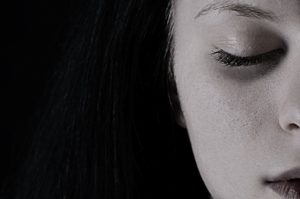In this day and age, women have a more expanded role than before. Aside from being the primary homemaker, loving spouse, and nurturing parent for their children, they are often needed to earn for the family as well.
 All of these differing roles add a lot of emotional stress to a woman’s life. But even if women do not have a family yet, or choose not to have one, there is still the added burden of monthly hormonal cycles to deal with, making school or work life doubly challenging.
All of these differing roles add a lot of emotional stress to a woman’s life. But even if women do not have a family yet, or choose not to have one, there is still the added burden of monthly hormonal cycles to deal with, making school or work life doubly challenging.
Fortunately, emotions are able to settle down after some days, returning to the natural state of calmness – not too high and not too low. But in other situations, depression has already set in, making it difficult to regain internal balance. This may start a debilitating cycle of depression that may last weeks, months, or years.
In the U.S. alone, an estimated 15 million people suffer from depression each year with most of them women. Depression in women may also occur at an earlier age than most men. A woman’s depression usually lasts longer and occurs more frequently than in men. Santa Monica Christian Counseling offers specialized care to help women navigate and heal from depression, providing support tailored to their needs.
Causes of Depression Symptoms in Women
There are many contributing factors to depression symptoms in women. While many of these also contribute to depression in men, the others are generally unique to the life experience of women.
Biological Factors
Biologically, depression can be passed on from generation to generation, though this is not exact since other factors can counteract it; if a family member has depression, the higher the vulnerability to it.
Ongoing health issues are another possible cause. Chronic pain, a disability, or a lingering illness can also cause depression. The same is true for sudden life changes (e.g. crash diet, quitting smoking/drinking).
And then there are the hormonal factors unique to women such as fertility, menopause, pregnancy, and the menstrual cycle which may also cause depression. Risks are even higher if the woman suffers from hormonal imbalances and fluctuations in her usual cycle.
Psychological Factors
As women are more emotionally connected then men, the higher the chance that they may fall into depression at times when they are reminded of negative past events and other unhealthy thoughts (e.g. body image issues, general insecurity). This rumination on negative issues is also a reason why depressive episodes often last longer in women than in men, leading towards more severe depressive symptoms (e.g. self-harm, suicide).
 Women are also more prone to stress and possible stress-induced depression than men due to higher levels of progesterone, a hormone that can block out stress-regulating hormones. Additional psychological factors include mood disorders, past trauma, and substance abuse.
Women are also more prone to stress and possible stress-induced depression than men due to higher levels of progesterone, a hormone that can block out stress-regulating hormones. Additional psychological factors include mood disorders, past trauma, and substance abuse.
Social Factors
Despite generally being the more sociable gender, the women’s coping skills for stress are quite different than men. Relational problems, especially marital ones, usually hit women harder than men. This difference can also be seen when dealing with work-life balance, financial trouble, and even sorrowful events such as death.
Common Forms of Depression in Women
The following are some of the typical types of depression that many women experience today.
Major Depression
This is a serious type of depression that greatly impairs a woman’s ability to function in daily life – whether at home, school, or work. Some common symptoms include difficulty sleeping, problems with diet (overeating or undereating); and a lack of desire to do the usual things in life, including activities she used to do for fun.
A woman with major depression often tries to distance herself from the world, hurting her relationships with others. At such times, her self-esteem may be very low, causing herself to believe that she is unimportant. Because of such ongoing, negative thoughts, major depression may be experienced for extended periods of time.
Persistent Depressive Disorder
This is very similar to major depression but milder in form. Unlike major depression, persistent depressive disorder (PPD) lasts much longer. A person is diagnosed to have this if depressive symptoms have been present for a minimum of two years. It is possible, however, that during their experience of PPD that they may have episodes of major depression.
Postpartum Depression
 This is a type of depression that affects some women after giving birth, causing them to feel sad, irritable, and even confused. The exact cause is unclear, but it is believed to be a combination of physical and emotional factors. Physically, the woman’s body is undergoing hormonal changes, the stress of breast feeding, and lack of sleep.
This is a type of depression that affects some women after giving birth, causing them to feel sad, irritable, and even confused. The exact cause is unclear, but it is believed to be a combination of physical and emotional factors. Physically, the woman’s body is undergoing hormonal changes, the stress of breast feeding, and lack of sleep.
Emotionally, she may be struggling with her new role in life or with the idea of nurturing another child. Additionally, there may be feelings of confusion since a new life is supposed to be celebrated and not regretted.
Some women are able to overcome this within a few weeks’ time. But in other cases, it may last for months or even years.
Premenstrual Dysphoric Disorder and Others Connected to Bodily Changes
Most people are aware of women’s premenstrual syndrome (PMS), that irritable time prior to and during a woman’s monthly cycle. Men have been known to be extra nice at such a time, especially to their wives.
However, some women may suffer from premenstrual dysphoric disorder which is a form of depression tied to their menstrual cycle. Rather than the usual irritability expected during PMS, the woman may have severe mood swings, anger, anxiety, or negative thoughts. Such symptoms may greatly interfere with their activities and relationships.
Additionally, at other times of a woman’s life, she may also experience perinatal depression, which occurs during pregnancy before the baby is born; and perimenopausal depression, which occurs just before menopause.
Common Depression Symptoms in Women
Because women are particularly prone to depression due to their role in society and the uniqueness of their bodies, it is important to be able to identify the symptoms of depression to combat them early. The following are the most common signs.
- Appetite changes (overeating or undereating)
- Body aches (headaches, muscle aches, muscle tension, stomachaches)
- Constant fatigue
- Difficulty concentrating, remembering, and making sound decisions
- Feelings of deep sadness and despair
- Irritability
- Lack of interest in daily activities, including formerly fun ones
- Mood swings
- Panic attacks
- Sleeping problems (too little or too much)
- Suicidal thoughts
Dealing with Depression Symptoms
1. Medication
In some situations, medication may be required to lessen depressive symptoms; however, side effects should be taken note of. And if the woman is pregnant, she should always consult a physician first.
2. Self-care
 It helps to intentionally do things to uplift the body, mind, and spirit. Physically, one must consciously take time to exercise (e.g. walk around the park), eat well, and get enough sleep. Mentally, deep breathing exercises and journal writing may help release emotional stress. Spiritually, prayer is very important. It is also good to have a strong support group to lean on and ask for prayers.
It helps to intentionally do things to uplift the body, mind, and spirit. Physically, one must consciously take time to exercise (e.g. walk around the park), eat well, and get enough sleep. Mentally, deep breathing exercises and journal writing may help release emotional stress. Spiritually, prayer is very important. It is also good to have a strong support group to lean on and ask for prayers.
3. Professional Counseling
For some women, medication and self-care are not enough, especially when their depressive symptoms are very strong. In such cases, professional help is needed to get them back on track. Counselors can get to the underlying issues, like past trauma or failures so that the sufferer can face and overcome them.
Seek Help through Christian Counseling
Whenever possible, it is always best to seek the help of a Christian counselor. Similar to other therapists, Christian counselors will also use the latest counseling methods to get to the root problems of the woman’s depression (e.g. addictions, fears, trauma).
But more importantly, the sufferer will be connected to God through prayer and the reading of Scripture. Depression usually involves a lot of negative thoughts about inadequacy and fears for the future. It is only through a strong connection to God that such feelings and fears may be replaced with contentment and peace. That is the key to complete healing. Reach out to a counselor at Santa Monica Christian Counseling to begin your journey of healing and spiritual restoration.
If you or a friend is suffering from depression, seek help soon. Don’t let depression ruin your life.
“Weeping”, Courtesy of Free-Photos, Pixabay.com, CC0 License; “Sadness”, Courtesyof 422694, Pixabay.com, CC0 License; “Mother and Child”, Courtesy of Kevin Liang, Unsplash.com, CC0 License; “Sad Teen,” courtesy of Paul De Los Reyes, Flickr CreativeCommons, (CC BY 2.0)


